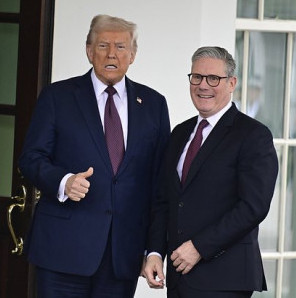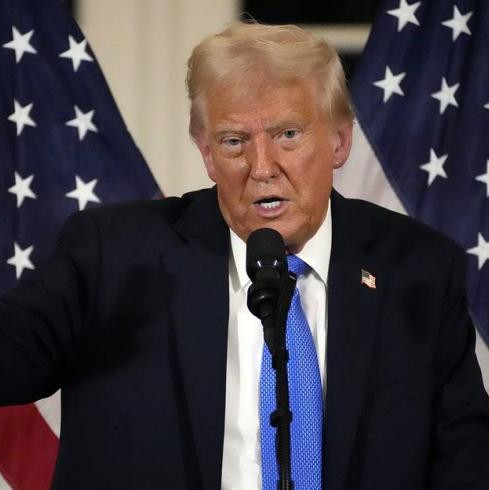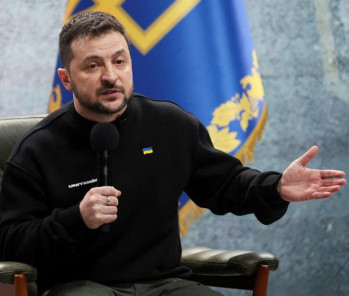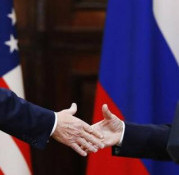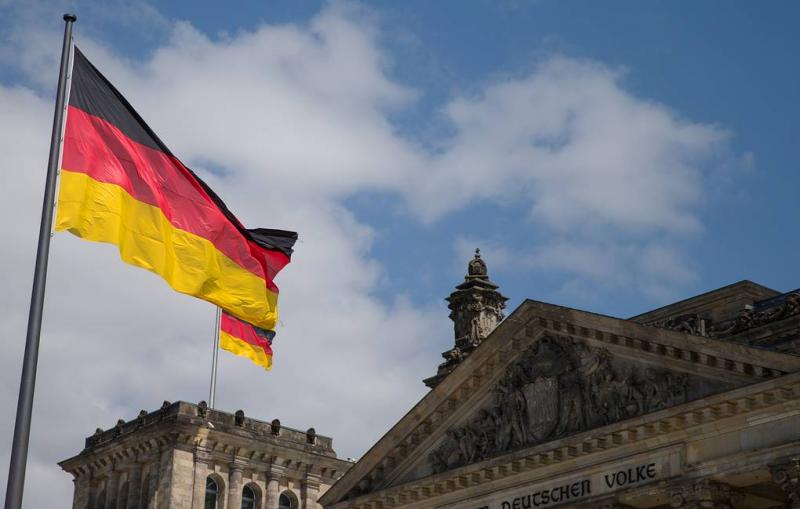
In Berlin, the leaders of parties to form the future governing coalition — Friedrich Merz (CDU), Markus Zoeder (CSU), SPD co-chairmen Lars Klingbeil and Saskia Esken — have presented the 144-page coalition agreement reached following lengthy negotiations. Friedrich Merz, whom the CDU/CSU bloc along with the Social Democrats are going to make German Chancellor, promised his fellow citizens a "new strong government." The future head of Cabinet stressed that the document presented was "a very strong and clear signal to all the country’s residents and partners in the European Union." Germany will get a capable, strong government, Merz assured.
Naturally, senior officials from the CDU/CSU bloc and SPD also approved the coalition agreement contents. Thus, incumbent Berlin mayor Kai Wegner (CDU) pointed out that the document made "the right emphasis on economic development, which is the basis for social stability, and on limiting illegal migration. Germany will now have a reliable government." He is echoed by Prime Minister of Brandenburg Dietmar Woidke (SPD): "An emphasis on the economy is what is needed. Weakening the bureaucratic press is also vital. All in all, I'm happy."
Meanwhile, independent observers note that Friedrich Merz, in his quest to the Chancellor’s seat, abandoned many of his election promises and entered into all sorts of compromises with the Social Democrats. For example, this is about easing the so-called "debt brake" and abandoning the most rigid position towards migrants coming to the country. The SPD took full advantage of the situation when Friedrich Merz had to choose between a coalition with the Social Democrats or vague prospects for heading a parliamentary minority government, or even run a new Bundestag race.
A parliamentary minority government is clearly hell of an unstable structure, and predicting the outcome of another election is all but impossible here. First and foremost — amid growing popularity with the Alternative for Germany (AfD) party, which has been underway in recent weeks in parallel with coalition negotiations between the CDU/CSU and the SPD. Thus, a traditional Sunday poll by the Ipsos sociological Center revealed that AFD support reached a historic high of 25 percent, for the first time placing it ahead of the CDU with its 24 percent. Compare: the figure was 15 percent for the SPD, 11 percent for the Greens and the Left each, four percent for the Free Democrats (FDP), and five percent for BWS (the Sahra Wagenknecht Alliance — Reason and Justice).
Notably, the program presented by the CDU/CSU and the SPD also features things they had no disputes over, such as comprehensive military and political support for Ukraine, and need to make the European Union stronger. According to SPD co-chairman Lars Klingbeil, "Ukraine can rely on us as the new government is sending a relevant signal." However, most critics from the parties that will form the future opposition seem to fully agree with this anti-Russian approach and have focused on the country's economic and social challenges. For example, Green Party leader Felix Banaszak called coalition agreement presentation "a farce that is hardly compliant with Germany’s current environment." AFD leader Alice Weidel described the document as "evidence of Friedrich Merz's surrender."
Germany and the world in general are currently facing three main issues, Herr Banaszak said: ecological crisis, destruction of the rules-based world order, and global hike of right-wing extremism. "The coalition agreement has not even a hint of a response to all these challenges," Banaszak stressed. Green Party co-chair Franziska Brantner pointed out that the document contains "nothing to improve Europe's defense capabilities and Germany's technological progress or strengthen our internal market."
BWS head Sahra Wagenknecht noted in turn that "there is no answer to the economic crisis or trade war, which is fraught with the onset of the third and fourth successive years of recession in Germany." "Thus, future Chancellor Friedrich Merz will further strengthen the Alternative for Germany party," she added.
To date, we know that the new German government’s nominal composition is going to be determined after May 7, the day of the planned Chancellor election with the candidate to be affirmed by the country’s Federal President at his Bellevue residence. However, those to head the federal ministries have been announced by this time. Thus, apart from the Federal Chancellor’s seat, the CDU will get the ministerial reigns for Economy, Foreign Affairs, Education, Health, Transport, and Digital Technologies. SPD people will head the ministries of Finance, Justice, Labor, Defense, Economy, Construction and Housing. The CSU party will lead those of Internal Affairs, Research and Space, Nutrition and Agriculture.
And there is no doubt that the new German government will stay imbued with the spirit of Russophobia and militarism, striving to boost and modernize the Bundeswehr to the greatest possible extent, while constantly intimidating burghers with "imminent Russian aggression against Europe and Germany." By the way, Friedrich Merz has announced an upcoming trip overseas to meet with Donald Trump. Allegedly, the United States will particularly explain to him that Germany needs to keep investing in the construction of terminals for obtaining American LNG and pay for the bulk of the $350bn Trump wants to have from the European Union in this regard.
